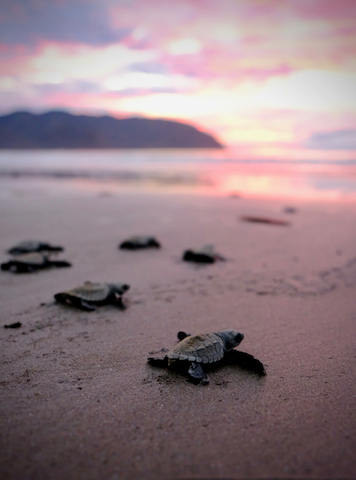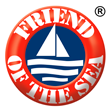Sea Turtle Watching
What are Sea Turtles?
Sea turtles are among the cutest animals populating our seas. It doesn’t come as a surprise that both divers and snorkelers are always very happy to spot them and swim with them.
These reptiles (like crocodiles and snakes) have existed for over 150 million years. That’s long enough to have seen the rise and demise of dinosaurs.
As you’ve probably already guessed, sea turtles have adapted their bodies to life in the oceans. In fact, they spend about 96 percent of their lives at sea. There are seven species of sea turtle:
- Leatherback sea turtle (Dermochelys coriacea)
- Loggerhead sea turtle (Caretta caretta)
- Green sea turtle (Chelonia mydas)
- Hawksbill sea turtle (Eretmochelys imbricata)
- Olive Ridley sea turtle (Lepidochelys olivacea)
- Flatback sea turtle (Natator depressus)
- Kemp’s Ridley sea turtle (Lepidochelys kempii)

How do Sea Turtles Hatch?
Nesting female sea turtles lay their eggs on the beach in the sand and, after an incubation period of around 60 days, the sea turtle eggs hatch. The hatchlings break out of their shells, dig themselves out of the nest, emerging usually at night and rush towards the sea. There are however numerous obstacles for these tiny hatchlings once in the open ocean – in fact only about one in 1,000 hatchlings survive to adulthood.
What is Sea Turtle watching?
We can interact with sea turtle by swimming, by taking part in a sea turtle nesting tour and watching females laying their eggs at the beach or emerging as they are born. As observers, we must respect them in their natural habitat.
For this reason, in collaboration with Kristina Loosen from Olive Ridley Project and Brad Nahill from SEE Turtles, we have created rules of conduct that aim to protect sea turtles through sea turtle conservation. The Standard is applicable to all tour operators who respect responsible tourism and strive to protect sea turtles.
The Standard
Friend of the Sea’s Sustainable Sea Turtle Watching standard seeks to minimise unintentional disturbance through key principles of conduct.
Friend of the Sea criteria for Sustainable Sea Turtle Watching require:
- don’t touch sea turtles;
- maintaining a minimum distance from sea turtles;
- training on how to swim with sea turtles;
- training programmes for operators and crew;
- scientific data collection;
- no single-use plastic on-board.
Would you like to receive a quotation for Friend of the Sea audit and royalties to use our logo?
Please fill out the online Preliminary Information Form (PIF) and send back to quality@friendofthesea.org
- All the information will be kept strictly confidential and implies NO commitment from your company.
- The Friend of the Sea certification is voluntary and NOT mandatory to gain access to markets.
- The application process is NOT discriminatory on size, scale, management and minimum number of operators.
- Friend of the Sea is a NGO and it strives to make participation in the audits affordable for all companies.
- Please, contact us for more information on Government funding which might be available in your Country for sustainability certifications: info@friendofthesea.org



